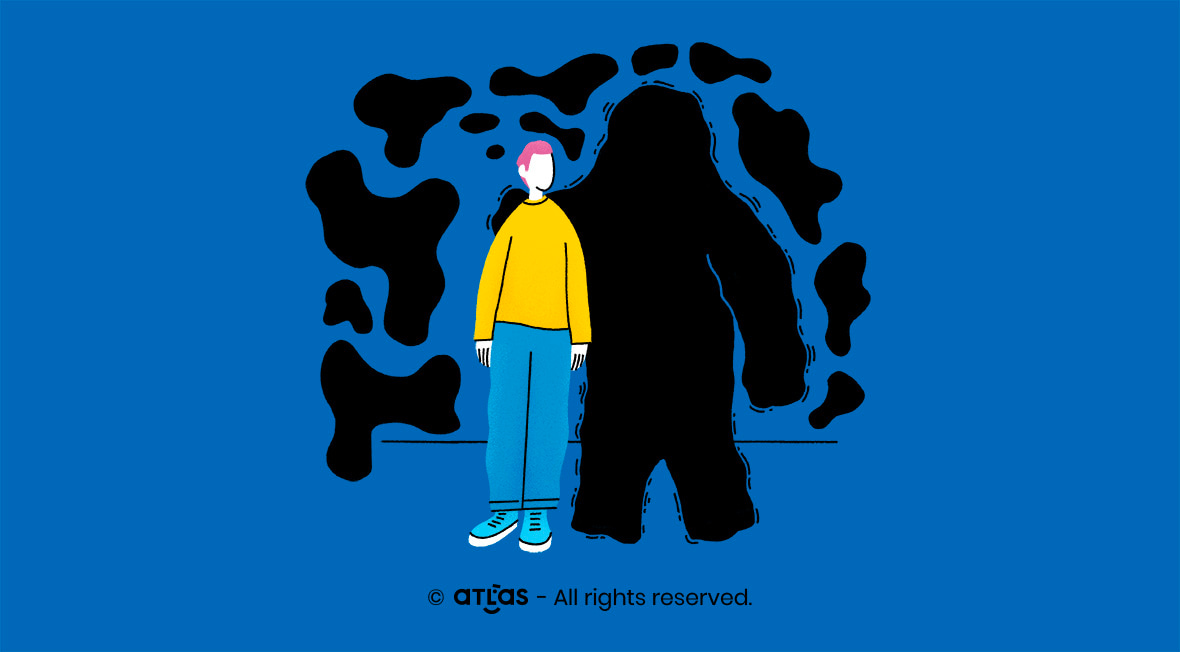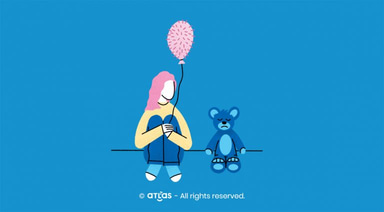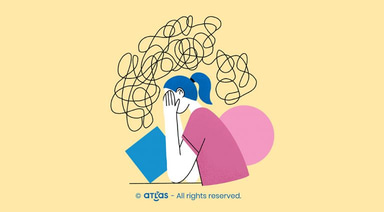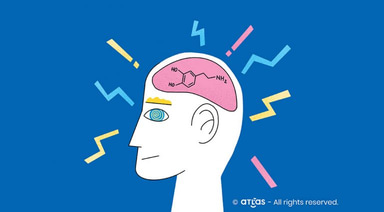Depression is perhaps a term that is far too used, but as much as we would like, it is not just a term and in no way obsolete in importance. It is part of the great family of conditions that come without even noticing and doesn’t go away on its own. It turns into answers or questions, generated by multiple changes in your life.
Depression is not seasonal sadness or just a bad pass; it’s not just a form of so-called madness, is a medical condition!
Imagine a roulette! Then think that it is graduated with various emotions when it crashes, open. We have all kinds of feelings right in front of us. We know that it would be normal to enjoy things again just like those around us, but it seems impossible and increasingly challenging to measure the intensity in the pressure we feel. Depression doesn’t let us see joy an inch away, and then it’s time for us to let her go.
You’re still on the couch; you’re still asking to pull a blanket over your helplessness, but not from yesterday or today, even for many weeks or months in a row? Do all words become silent? Spring brand Covid-19 doesn’t even chirp in the sun, and happiness is the word that stabs you and makes you cry without running in search of it.
Neither your children, nor love, nor a good night’s sleep, career or old friends are nothing but disturbing factors, and in your mind sometimes trigger the flood of tears that now do not wash anything, but drowns you day after day until you get the courage to speak. We’re here!
Who is Mrs. Depression, and what is she looking for to visit you?
If we look across the Ocean, at the precise explanations of the World Health Organization and the American Psychiatric Association, the answers to the question “What is depression?” seem very clear.
Depression is a prevalent mental disorder that affects millions of people around the world. It is characterized by persistent sadness and a lack of interest or pleasure in activities that were previously rewarding or pleasant.
It can also disrupt sleep and appetite; fatigue and poor concentration are common. Depression is a leading cause of disability worldwide and contributes significantly to the overall burden of the disease. The effects of depression can be seen for an extended and can dramatically affect a person’s ability to function and live a satisfying life.
Depression (the so-called major depressive disorder) is a common and severe medical condition that affects in a negative way how you feel, the way you think and act. Fortunately, it can be treatable. Depression causes feelings of sadness and lost interest in activities that you once loved. It can lead you to all sorts of emotional and physical problems and can reduce a person’s ability to ‘function’ at work and home.
Unfortunately, depression has a past, but also a future!
Depression has a past, a future, but also gender?. You can also see the differences between male and female here.
It was statistically predicted from a few years ago, the extent of this condition achieved by 2020, then getting to be in 2030, “the biggest contributor to the overall burden of disease and disability.”
How can you recognize the symptoms of depression?
Psychological symptoms include:
- altered mood or accentuated sadness without a clear reason;
- feelings of despair and helplessness;
- low self-esteem;
- feeling like crying;
- feelings of guilt;
- feeling irritable and intolerant towards others;
- lack of motivation or low interest in any type of activity;
- impossibility of making decisions;
- a marked lack of the joy to live;
- anxiety or concern;
- thoughts of suicide or injury.
Clinical depression is also a physical condition, as some specialists say, with nothing inferior to a physical illness in the true sense of the word.
Physical symptoms include:
- slower than usual movement or speech;
- changes in appetite or weight;
- morning sickness (effect of subsequent hormonal imbalances);
- constipation;
- unexplained pain throughout the body;
- lack of energy in the long term;
- loss of libido (low sexual appetite).
Social symptoms:
- participation in a few social activities and avoiding to go out with friends;
- neglecting hobbies;
- family/couple of life problems;
- various issues at work.
Social symptoms are the ones that ultimately get the attention of those close to them, but are often considered a simple behavioural change. Nothing more wrong!
Possible causes in triggering depression
It is not known what could exactly cause depression. As with other mental disorders, a variety of factors may be involved, such as:
- Hormones. Changes in the balance of the body may be involved in causing or triggering depression. For example, hormonal changes can lead to postpartum depression.
- Inherited features. We find depression mainly in people whose blood relatives also have this condition. Studies are still being done to identify the genes involved in triggering it.
- Brain chemistry. Neurotransmitters are chemicals in the brain that interact with the neurocircuits involved in maintaining mood stability. They can play a significant role in depression and its treatment.
Severity of Depression
Tim Carthoper – Member of the Royal College of Psychiatrists in the paper – Depressive illness mentioned:
I often find that my patients treat themselves with a hardness of a level that they would consider harmful to others. The feeling of guilt and self-pity is partly an indication of the disease, but also a cause of it.
Depression can often be progressive, so it can be difficult to notice when something is wrong. Most of the people try to cope with their symptoms without realizing that they are not well. Sometimes it may take a friend or family member to suggest that something is wrong.
The severity is classified into three stages:
- mild depression –easier impact on everyday life;
- moderate depression –significant impact on daily life;
- severe depression – makes everyday life almost impossible.
If you believe that you could have depression, complete the PHQ-9 Questionnaire, this is a quick test used to detect its presence and severity. But for a proper diagnosis and assessment of the state of depression, you need to call a specialist!
Sad or Depressed?
Being sad is not the same as being depressed! When you feel like sleeping an extra hour or have had a more difficult week at work and want to detach yourself a little, don’t be scared, it’s perfectly normal just as it’s sometimes normal not to know precisely why you’re sad, or to take the time to suffer from a loss.
Both the pain of losing someone you loved and depression can involve intense sadness and withdrawal from ordinary daily activities. Those concerned can often say: I am depressed!
When pain and depression coexist, the pain is more severe and lasts longer than pain without depression. Despite some overlaps between pain and depression, they are different.
Making the difference between them can help people get the help, support, or treatment they need.
Call a specialist! Only he can help you!
Dr. Tim Carthoper said:
If I would have received a dollar for every occasion, a depressed person was told by someone -Get up! I’d be Bill Gates. If the person could have gathered, they would have done it in the first place. I do not exclude here the good intention of those close to me, but beyond that, to recover the depressive requires understanding, patience, compassion, but especially specialized help.
It is essential to know that depression is a disease from which you can recover and that you can then maintain your mental health status if you make the right decisions. Thus, the most important thing is to call a specialist who will address depression in a personalized way, depending on its stage and severity.
Psychotherapy, including cognitive-behavioural therapy, family therapy, and interpersonal therapy, may exist options for addressing depression.
If you already have a diagnosis and need help in the therapeutic approach or want to discover together whether sadness is just sadness or depression, call our specialists, check and license out at your disposal through your ATLAS account or by calling ATLAS Help Line – 031 630 2020, a free phone line available 24/7.



